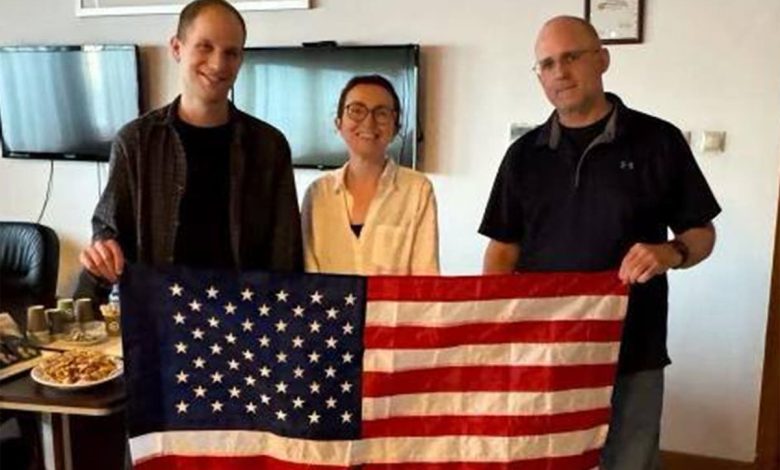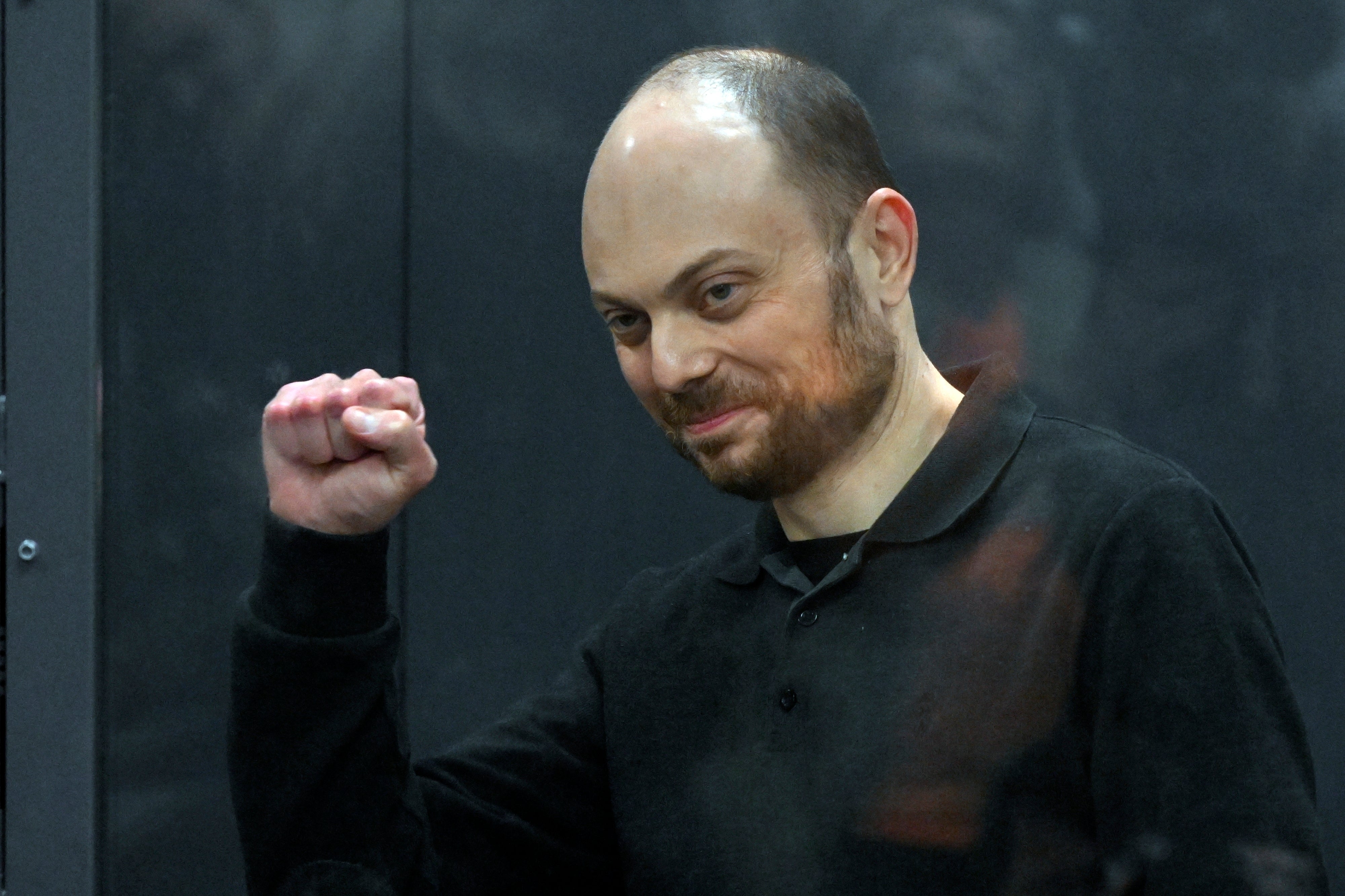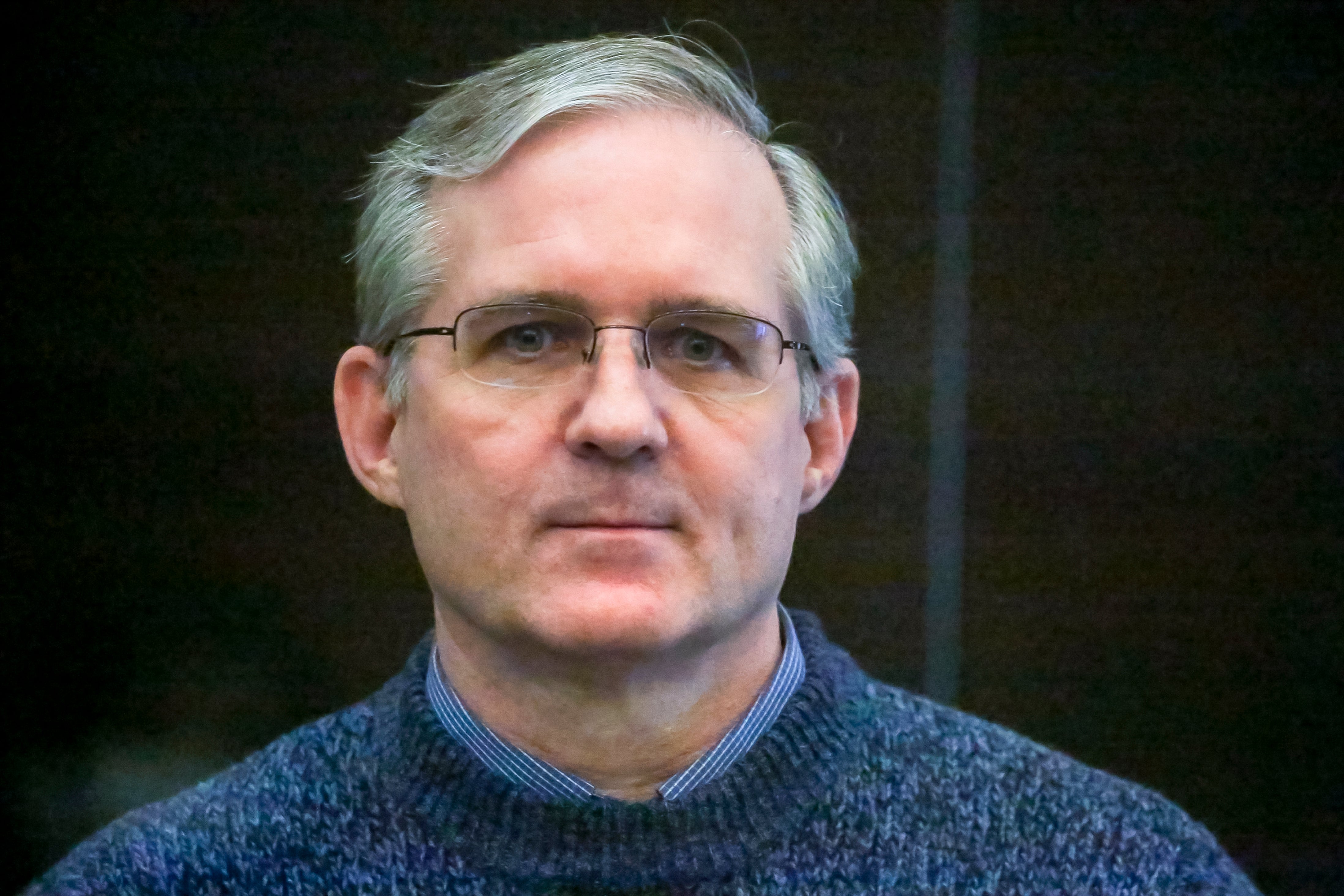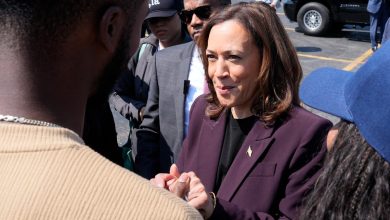Reporter Evan Gershkovich and US marine Paul Whelan released in ‘historic’ US-Russia prisoner swap

Journalist Evan Gershkovich and US marine Paul Whelan have been released from jail in Russia in the biggest prisoner swap with the West since the end of the Cold War.
After months of complex negotiations involving several countries, the Kremlin also released British-Russian dissident Vladimir Kara-Murza, 42, a staunch critic of Russian president Vladimir Putin. Kara-Murza was given a 25-year sentence in April 2023 on charges including treason, after he hit out against Russia’s invasion of Ukraine. That sentence remains the longest handed out to a Kremlin critic since the fall of the Soviet Union.
Also on the list: Alsu Kurmasheva, an editor for US-funded Radio Free Europe/Radio Liberty, who was convicted for violating a Russian law targeting foreign journalists by forcing them to register as foreign agents; anti-war artist and writer Aleksandra Skochilenko, who was convicted last autumn of “disseminating knowingly false information about the Russian armed forces;” dissident politician Ilya Yashin, who was sentenced to eight and a half years in prison in late 2022 for denouncing the Ukraine invasion; a pair of former staffers for late Russian opposition leader Alexei Navalny; and Russian-German dual citizen Kevin Lik, who, at 19, remains the youngest person ever to be convicted of treason in Russia.
Gershkovich was arrested in March 2023 while reporting in the city of Yekaterinburg and was sentenced to 16 years in prison for espionage last month in a brief, behind-closed-doors trial. He pleaded not guilty and the charges against him have been dismissed as nonsense by governments around the world. It came during Putin’s crackdown on dissent in the wake of the invasion of Ukraine in 2022, which has seen relations between Russia and the West fall to a decades-long low.
The massive prisoner swap, which took place in Turkey, is the product of intense negotiations between the US, Russia, Germany and other countries, led by US president Joe Biden and his national security team. It played on Putin’s desire to see the return of the Russian assassin Vadim Krasikov, who has been held in a German prison since 2019 for the murder of a Chechen exile in Berlin.
Speaking from the White House’s state dining room alongside relatives of Whelan, Kurmasheva, Gershkovich and Kara-Murza, Biden said it was “a very good afternoon” because all four were free and headed home. He added that the families had spoken to their released loved ones from the Oval Office just moments before.
“They’re out of Russia. Earlier today, they were flown to Turkey, and soon there’ll be wheels up on their way home to see their families. This is an incredible relief for all the family members gathered here. It’s relief to the friends and colleagues all across the country who have been praying for this day for a long time,” Biden said.

The president called the agreement “a feat of diplomacy and friendship”.
“This still would not have been made possible without our allies, Germany, Poland, Slovenia, Norway and Turkey – they all stepped up and they stood with us. They stood with us, and they made bold and brave decisions, released prisoners being held in their countries who are justifiably being held, and provided logistical support to get the Americans home,” he said, adding that the deal is “a powerful example of why it’s vital to have friends in this world, friends you can trust, work with and depend upon, especially on matters of great consequence and sensitivity like this”.
Germany’s government said it was not an easy decision to release the hitman – Krasikov is a colonel in the FSB security service – in exchange for German citizen Rico Krieger, who was sentenced to death in Belarus, then pardoned by the country’s president Alexander Lukashenko.
The Independent has previously reported on pleas by Kara-Murza’s wife, Evgenia, for action by the UK and others to save her husband. British prime minister Keir Starmer wrote on X: “I welcome the release of a number of prisoners held in Russia, including Vladimir Kara-Murza, Paul Whelan and Evan Gershkovich. We will continue to call on Russia to uphold freedom of political expression.”
The White House said eight prisoners held in the West were being sent back to Russia as part of the exchange.
Biden said that he expects to travel to Joint Base Andrews to welcome the released prisoners home “in just a few hours.” When pressed by The Independent on how he could put an end to the cycle that has seen Russia seize and detain Americans to force the return of Russians detained by the US and allies, Biden urged Americans “not to go to certain places” given “what’s at stake”.

White House national security adviser Jake Sullivan told reporters it “became clear” to the Biden administration that Russia would not consent to releasing Whelan, Gershkovich or Kurmasheva without securing Krasikov’s release. He noted that both Biden and Vice President Kamala Harris had personally engaged with German chancellor Olaf Scholz to convince him to allow for the release of Krasikov in exchange for the Americans held by Russia, plus other political prisoners. Sullivan recounted how Biden had called his Slovenian counterpart to press for the release of two Russian spies just one hour before he released a letter informing Americans that he would be standing down from his re-election campaign.
Paul Whelan, a Michigan resident who served in the US Marine Corps from 2003 to 2008 and worked in corporate security, was visiting Russia in 2018 when he was arrested in a Moscow hotel. Whelan was sentenced to 16 years in prison on espionage charges in 2020 and has always maintained his innocence.
The last prisoner swap between Russia and the US came in 2022, when US basketball star Brittney Griner was traded for notorious arms dealer Viktor Bout. In the last major exchange in 2010, 14 prisoners were exchanged.
Many of those freed had worked with Navalny, Russia’s leading opposition figure, who was announced dead at the Arctic penal colony he was being held in on various charges in February. His death was blamed on Putin by governments across the globe. It was believed Navalny would be part of any prison swap before he died. Navalny’s widow Yulia Navalnaya, who has vowed to continue his work, hailed the prison releases as “a great happiness”.
“Every released political prisoner is a huge victory and joy. No one should be held hostage by Putin, tortured and die in Putin’s prison,” she wrote on X.
For Yevgenia Chirikova, a Russian dissident living in exile, against whom the Kremlin has issued four criminal cases, the prisoner swap is bittersweet.
“First of all, I am very happy that my comrades have been freed! This is a great joy for all of us, opponents of the Putin regime,” she told The Independent.
“I realise that after the release of the hitman Krasikov, my chances and those of my loved ones to be killed by such a Putin hitman have increased, but this will not stop me. I will continue to help Ukraine win, as this is the key to liberating Russia from Putin’s despotism.”







